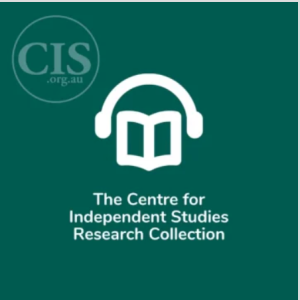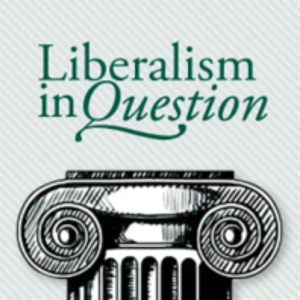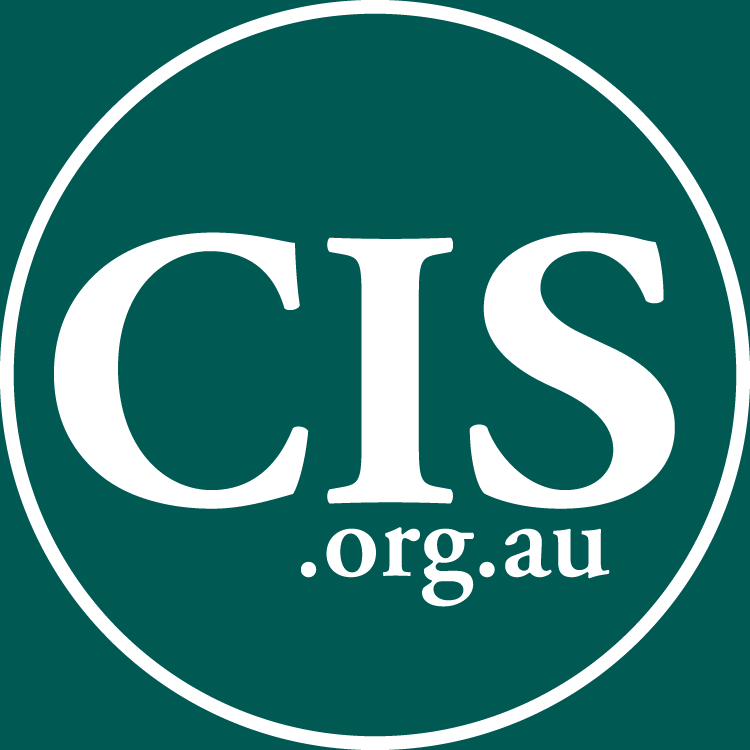Centre for Independent Studies
Let’s share good ideas. 💡 The Centre for Independent Studies promotes free choice and individual liberty and the open exchange of ideas. CIS encourages debate among leading academics, politicians, media and the public. We aim to make sure good policy ideas are heard and seriously considered so that Australia can prosper.
Episodes

Monday Oct 14, 2024
Monday Oct 14, 2024
The Rise of Activist Corporations: How activism agendas subsumed shareholder primacy
by Peter Swan AO
September 26, 2024
Australian companies have been shifting from a purely shareholder focus to a much vaguer, less accountable, and damaging stakeholder focus for many years. One important byproduct of this decline in shareholder focus has been former shareholder resources moving into ‘social responsibility’, corporate activism, and promotion of political and popular causes that are often antithetical to the interests of corporations’ own shareholders. This has resulted in many corporations becoming ‘woke’.Read the paper here: https://www.cis.org.au/publication/the-rise-of-activist-corporations-how-activism-agendas-subsumed-shareholder-primacy/
#auspol #woke

Thursday Oct 10, 2024
Thursday Oct 10, 2024
Watch here: https://youtu.be/C45cbnu3Q1k All our links: https://linktr.ee/centreforindependentstudies
In this eye-opening interview, Robert Forsyth sits down with Nicholas Eberstadt, a leading expert on North Korea and a senior fellow at the American Enterprise Institute, to dissect the origins and implications of North Korea's unique family dictatorship. The conversation delves into how the Kim dynasty has maintained an iron grip on the country through a blend of political strategy and cult of personality.
What are the roots of North Korea's dynastic rule? How has the regime's approach influenced its domestic and international policies? Robert and Nicholas explore these questions and provide an in-depth analysis of how the Kim family's authoritarian control has shaped North Korean society and its interactions with the world.#northkorea #libertarian #democracy #history

Thursday Sep 26, 2024
Thursday Sep 26, 2024
The Rise of Activist Corporations with Peter Swan - Interviewed by Emilie Dye.
Australian companies have been shifting from a purely shareholder focus to a much vaguer, less accountable, and damaging stakeholder focus for many years. One important byproduct of this decline in shareholder focus has been former shareholder resources moving into ‘social responsibility’, corporate activism, and promotion of political and popular causes that are often antithetical to the interests of corporations’ own shareholders. This has resulted in many corporations becoming ‘woke’.
Read the paper here: https://www.cis.org.au/publication/the-rise-of-activist-corporations-how-activism-agendas-subsumed-shareholder-primacy/

Thursday Sep 26, 2024
Thursday Sep 26, 2024
Watch here: https://youtu.be/vr3lSCpaK2o All our links: https://linktr.ee/centreforindependentstudies
Join Robert Forsyth in this enlightening interview with Dr. Jonathan Cole, a distinguished scholar and passionate advocate of classical liberalism. Dr. Cole shares his personal journey of conversion to classical liberalism, tracing the profound impact Ludwig von Mises had on his intellectual transformation and understanding of economic and political philosophy.
In this engaging discussion, Dr. Cole reflects on his intellectual evolution, the key principles of classical liberalism, and how Mises' ideas continue to shape contemporary debates on freedom, markets, and individual rights. Robert and Dr. Cole delve into the relevance of Mises' theories in today’s political climate and explore how classical liberalism offers solutions to modern challenges.#auspol #mises #libertarian

Thursday Sep 19, 2024
Thursday Sep 19, 2024
Read the paper here: https://www.cis.org.au/publication/government-spending-and-inflation/That government expenditure in Australia has grown apace in recent years is well-known. The growth became gargantuan during the coronavirus pandemic. However, to a less dramatic extent, it was happening before the pandemic — and has continued since it ended.
Some observers welcome this growth to the extent it is a reflection of new spending programs and expansion of existing programs perceived to meet legitimate needs. But it is also a matter of serious concern for reasons that include the implications for higher taxation and public debt, the effect on incentives and the diversion of scarce resources away from alternative and higher productivity activities.
Recently, attention has turned to the impact of higher public spending on inflation as monetary policy struggles to restore inflation to its target. Specifically, the Reserve Bank of Australia (RBA) has spoken of the high level of aggregate demand relative to the economy’s potential output. The RBA has drawn attention to the relatively rapid growth of public final demand as a contributor to excessive aggregate demand — although the Governor has also stated that public sector demand “is not the main game” in the policy response to persistent inflation.
This policy paper presents the key facts about public expenditure growth in recent years and discusses its contribution to inflation.

Wednesday Sep 18, 2024
Wednesday Sep 18, 2024
All our links: https://linktr.ee/centreforindependentstudies All Things Considered. Making Moral Sense of the Wars in Ukraine and Gaza by Nigel Biggar.Read the paper here: https://www.cis.org.au/publication/all-things-considered-making-moral-sense-of-the-wars-in-ukraine-and-gaza/
The pacifist answer to the problem of #war is straightforward. Any use of violent force by anybody in any circumstances is immoral and should cease. War is always worse than its alternatives; peace is always preferable. This is not a view to which I subscribe. We all want peace, but at what cost and to whom? If those who believe in the possibility of morally justified war have to reckon with the dreadful consequences of their position, so do pacifists. Not going to war in 1994 was good for Britons and Australians, but not so good for the Tutsi in Rwanda: our staying at peace left the Hutu at peace to slaughter 800,000 of them. Peace, like war, is morally complicated.
The war in #Ukraine has resulted in the widespread devastation of the country. Russian president Vladimir Putin’s threat to use nuclear weapons hangs over it, and it seems unlikely that the Ukrainians can triumph over Russia. So, surely it would have been better, if Kyiv had not resisted in the first place. And would it not be best, if it were to stop resisting now?
Meanwhile in #Gaza the civilian casualties of the war between Israel and Hamas continue to mount. South Africa has accused Israel of genocide, and the chief prosecutor of the International Criminal Court has applied for a warrant to arrest the Israeli Prime Minister. And yet, it was Hamas that began the current phase of the conflict with the horrendously deliberate and indiscriminate massacre of #Israeli civilians on October 7 last year. And it is Hamas that planned to make a battlefield out of a dense urban environment, building tunnels for its gunmen but no shelters for non-combatants. And it is Hamas that is constitutionally committed to eradicating #Israel. So how are we to make coherent moral sense of the situation?

Tuesday Sep 17, 2024
Tuesday Sep 17, 2024
Government spending and inflation with Robert Carling - Interviewed by Emilie Dye.That government expenditure in Australia has grown apace in recent years is well-known. The growth became gargantuan during the coronavirus pandemic. However, to a less dramatic extent, it was happening before the pandemic — and has continued since it ended.
Some observers welcome this growth to the extent it is a reflection of new spending programs and expansion of existing programs perceived to meet legitimate needs. But it is also a matter of serious concern for reasons that include the implications for higher taxation and public debt, the effect on incentives and the diversion of scarce resources away from alternative and higher productivity activities.
Recently, attention has turned to the impact of higher public spending on inflation as monetary policy struggles to restore inflation to its target. Specifically, the Reserve Bank of Australia (RBA) has spoken of the high level of aggregate demand relative to the economy’s potential output. The RBA has drawn attention to the relatively rapid growth of public final demand as a contributor to excessive aggregate demand — although the Governor has also stated that public sector demand “is not the main game” in the policy response to persistent inflation.
Here we talk about the key facts about public expenditure growth in recent years and discuss its contribution to inflation.You can also read the policy paper here:https://www.cis.org.au/publication/government-spending-and-inflation/

Monday Sep 16, 2024
Monday Sep 16, 2024
Watch Here: https://youtu.be/vNHk5nBeEbMAll our links: https://linktr.ee/centreforindependentstudies In this thought-provoking interview, Robert Forsyth sits down with Behnam Ben Taleblu, a renowned Iran expert and senior fellow at the Foundation for Defense of Democracies (FDD), to discuss the evolving landscape of liberalism in Iran. Together, they explore the complexities of Iran's political culture, the rise of reformist and liberal movements, and the challenges posed by the ruling regime. What is the future of liberalism in Iran? Can the country embrace democratic values in the face of internal and external pressures? How do the people of Iran view their role in shaping the future? Robert and Behnam delve into these questions and more, offering unique insights on the current socio-political climate and potential pathways forward for Iran.

Thursday Aug 29, 2024
Thursday Aug 29, 2024
Watch Here: https://youtu.be/ybXvmRJ2nO0
The Australian nation began as one of the world's first social democracies. Today its political axis has shifted to make it one of the world's leading liberal countries, enjoying unparalleled prosperity - According to today's guest Bob Catley.
Are you looking for sound, thought-provoking conversations on current affairs, politics, and culture from a Classical Liberal perspective? If yes, you are in the right place. Liberalism in Question engages some of our society’s most prominent researchers, political figures, and free speech advocates --finding out their views on the state of Classical Liberalism.
All our links: https://linktr.ee/centreforindependentstudies

Thursday Aug 01, 2024
Thursday Aug 01, 2024
Watch here: https://youtu.be/UtF9I1H2bNEJimmy Lai, a British citizen, owner of the independent newspaper Apple Daily and pro-democracy and human rights defender, has been detained and subjected to multiple Kafkaesque trials for fighting for freedom of speech and democracy in Hong Kong. His son, Sebastien Lai, and human rights lawyer Caoilfhionn Gallagher KC, sit down to talk about the trail and the diminishing freedom in Hong Kong.Are you looking for sound, thought-provoking conversations on current affairs, politics, and culture from a Classical Liberal perspective? If yes, you are in the right place. Liberalism in Question engages some of our society’s most prominent researchers, political figures, and free speech advocates --finding out their views on the state of Classical Liberalism.All our links: https://linktr.ee/centreforindependentstudies

Centre for Independent Studies
Let’s share good ideas. 💡
The Centre for Independent Studies promotes free choice and individual liberty and the open exchange of ideas. CIS encourages debate among leading academics, politicians, media and the public. We aim to make sure good policy ideas are heard and seriously considered so that Australia can prosper.




